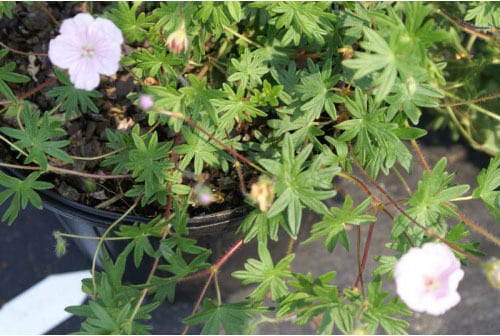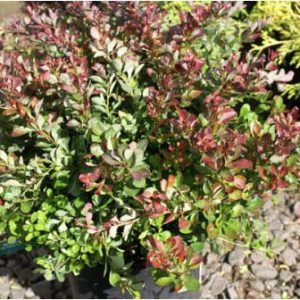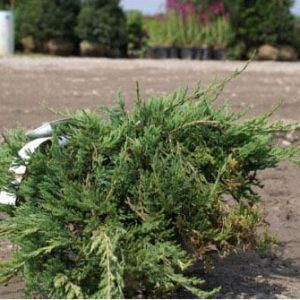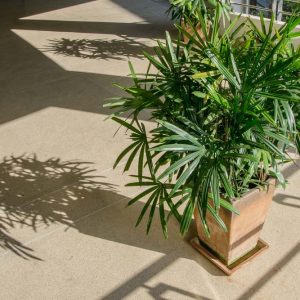Description
Geranium lancrastiense
blooms in mid spring
comes in a quart or one gallon container
Geranium – Cranesbill –
There are about 300 species of annuals, biennials, perennials, and herbaceous, semi evergreen and evergreen, sometimes tuberous perennials, in this genus. Often confused with the genus Pelargonium (which is commonly known as geranium).They occur in all except very wet habitats throughout temperate regions. The leaves, usually rounded or 5 pointed, are palmately lobed, the division further lobed and toothed, they are frequently aromatic, or interestingly marked, textured, or colored, sometimes also coloring well in autumn. The basal leaves are often arranged in loose, sometimes overwintering or semi evergreen rosettes, the stem leaves are usually smaller, with fewer lobes. Some bear fragrant foliage. The 5 petalled flowers are white, pink, blue, or purple, usually saucer shaped, sometimes flat or star shaped, with petals sometimes reflexed and often contrastingly veined or marked, they are mostly borne in diffuse or dense cymes or umbel or panicle like inflorescences.
Cranesbill are generally long lived, versatile, and undemanding plants. Compact perennials, to 6″ tall, are good for a rock garden, trailing spreading or mat forming plants are effective as groundcover in a woodland or wild garden. Taller, clump forming species and hybrids are suitable for a border or among shrubs.
Grow larger species and hybrids in any moderately fertile, well drained soil in full sun or partially shade, but in any soil (but waterlogged) in either sun or shade, are tolerated. Grow small species and hybrids in humus rich, sharply drained soil in full sun. Divide in spring or fall.
zones 4-8





